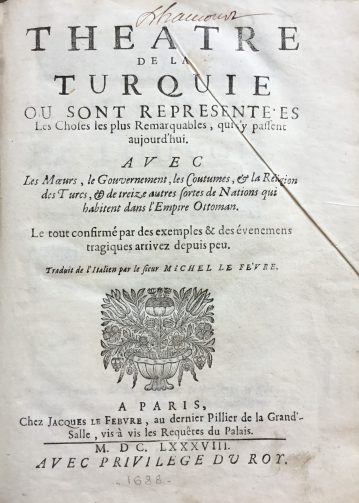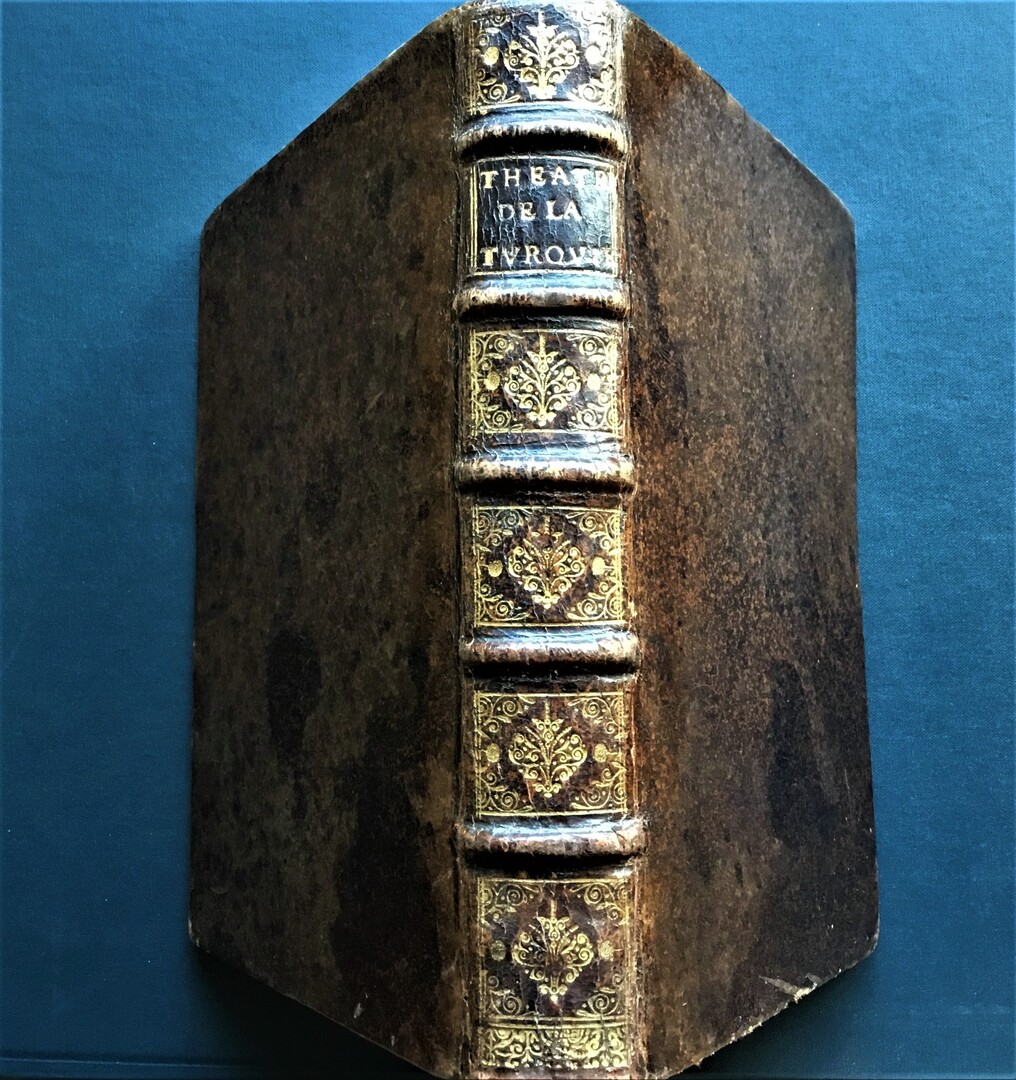Theatre de la Turquie où sont représentées Les Choses les plus Remarquables, qui s’y passent aujourd’hui. Avec Les Moeurs, le Gouvernement, les Coutumes, & la Religion des Turcs, & de treize autres sortes de Nations qui habitent dans l’Empire Ottoman. Le tout confirmé par des exemples & des événemens tragiques arrivez depuis peu.
Febure, Justinien de Tours, [Edit Michel Fèvre)].
Synopsis
The author of this book was a missionary and orientalist named Justinian de Tours, who by his own account spent 18 years wandering in the Levant. He had taken the religious name Giustiniano when he joined the Capuchin order, and wrote under the pseudonym Michel Febure or Fèvre. He published this book first in Italian, Le Teatro della Turchia was edited in Milan, the first French publication was in 1682.
This is a report of the “disorders of Turkey,” as he mentions to the reader in his preface. His wish in this work is to denounce the Turks and enlighten the European opinion on the Turkish power, by describing the fragility and the decadence of the empire that he calls the “Babylon of confusion” and by calling for a military re-conquest. He mentions among others, the absence of printing as one of the sources of ignorance, as well as bad government, social and political organisation, the informal practice of religion, superstitions of the people, their weaknesses at sea, etc. His goal was “to make known (for the sake of Christianity) the truth concerning the weakness and impotence of the Turks, by showing the ruin & the disorder of the empire and he is hoping to get Europeans to realise that the conquest of this great empire is much easier to achieve than they think, as once they lose the impression that the Empire is strong, the conquest will be achievable…”
Bibliographic reference: Blackmer 577 for first French edition.








